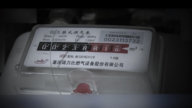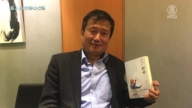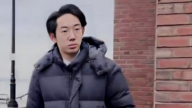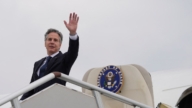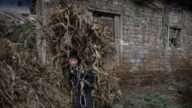【新唐人2013年10月25日讯】中共18届三中全会即将上演,中共最高领导层自述当前的改革问题,都是难啃的硬骨头,因此向中外专家和智囊讨求所谓“改革良药”。那么,中国真正的问题出在哪里?中共内部的所谓改革还能奏效吗?
中共11月就要上演的三中全会,至今还没有公布开会日期。不过几个月来,中共高层在多种场合,特别是国际会议上,都在主动谈及中共要全面深化改革。
10月23号,中共国家主席习近平会见了海外智囊团,就中共即将定谳的经济改革向他们“求医问药”,智囊团中包括世界最大的私人股权公司—-“凯雷集团”董事、总经理大卫•鲁宾斯坦(David M.Rubenstein),和“华盛顿布鲁金斯研究院”理事会主席—约翰•桑顿(John Thornton)等。
习近平当天在钓鱼台国宾馆,会见“清华大学经济管理学院顾问委员会”海外委员时,再次强调,中共本届三中全会,将研究全面深化改革问题。
习近平自述,当前改革需要解决的问题格外艰钜,都是难啃的硬骨头。瞻前顾后,畏葸不前,不仅不能前进,而且可能前功尽弃。
美国南卡罗莱纳大学艾肯商学院教授谢田:“每次中共在危机的关头,在几乎崩溃灭亡的关头,总是会抛出来各种各样的烟幕弹,说他们又要改革了,又要反腐了,又要政治改革了,中共的本质从来就没有改变过,所有这些所谓的改革,或者听取别人的意见,或者听取智囊团的建议,目地只有一个,就是为了继续维护和巩固中共的统治。”
中共历史上,自1978年邓小平启动了第一次所谓改革后,还进行了几次经济改革,不过这些改革往往在中共处于执政危机后出现。
促成第一次改革的危机,是“文化大革命”导致中国经济处于毁灭的边缘,直接威胁到共产党的执政,不得不实行以家庭联产承包的责任制。
第二次改革,始于1989年“六四事件”后,国际上一片制裁之声,同时,苏联等东欧“共产国际”全面崩溃,中共再次面临生存危机,邓小平被迫“南巡讲话”,开始跛足改革。
到了1998年,2/3以上国有企业亏损,中共的经济命脉面临衰亡,中共开始所谓的国有企业重组,工人开始下岗,大量国有资产落入共产党领导人的私人腰包,造成目前社会贫富两极分化严重。
那么,中共现在进入的所谓“改革深水区”,面临了什么危机?
旅美原大陆史学教授刘因全:“中国目前面临的危机是全面危机,从思想文化上、经济上、政治上、环保方面,中共面临一个全面危机爆发的前夜的这么一个阶段,在这种情况下他们非常的不安。”
台湾大学经济系教授张清溪:“现在(中共)遭遇到很多的困难,包括拆迁造成社会的民怨,很多特权造成分配非常悬殊,污染非常严重,地方债务问题,金融问题非常严重,这种事情都是因为政府主导,必须要由政府主导变成市场主导,但是因为它政治没有改变,这种东西是不可能成功的。”
日前,中共国务院总理李克强出席中共工会全国代表大会时,在报告中,他承认当前中国经济运行面临一系列的困境。他表示,今年前两个季度,经济增速持续放缓,消费、投资以及外贸全面呈现下行趋势,中央财政收入出现负增长。
国内经济学家吴敬琏指出,只完成一半的改革是当前经济所面临的问题的根源。必须实施政治体制改革,才能使增长步入可持续轨道。
中国金融智库研究员巩胜利:“习近平在政治改革上比胡温时期还要往后走,在经济改革,因为限于全球经济环境发生的变化,他又不得不往前推,一退一推两个的矛盾显而易见,如果没有政治开放的话,这些经济开放已经走到了极限。”
目前中国各种维权抗暴运动风起云涌,民众退出中共的“三退”大潮,再再凸显中共面临的执政危机。
新唐人记者刘惠采访报导
Xi Jinping Consults Overseas Think Tank
The Chinese Communist Party’s (CCP)
Third Plenary Session will be held soon.
The top leadership say the current reform like
biting on hard bones, is very tough.
They consulted experts from home and abroad.
What is the real direction for China?
Will the CCP internal reforms work?
Let’s take a look.
The Third Plenary Session was scheduled in November.
The date has not been publicized yet.
For several months, the high-level leaders spoke on many
occasions, particularly at international meetings.
They vowed to fully deepen the reforms.
On Oct. 23, the CCP leader Xi Jinping met
with an overseas think tank.
Xi consulted experts about China’s economic reform.
The experts include David Rubenstein, co-founder of the
Carlyle Group, a global private equity investment firm,
and John Thornton, Chairman of the Board of Trustees at
Brookings Institution in Washington D.C..
On the same day, Xi met with overseas members of
Tsinghua University School of Economics and
Management Committee in Diaoyutai State Guesthouse.
Xi emphasized the upcoming CCP conference will discuss
deepening reforms.
Xi says the current problem of reform needs to be resolved
is extremely tough, which like hard bones is hard to bite.
If they hesitate and are timid, not only can the CCP not
leap forward, but it will also ruin previous achievements.
Xie Tian, Professor at Aiken Business School, University
of South Carolina: “Each time the CCP faces crisis,
it always uses various means such as reform,
anti-corruption, political reform to escape the collaspe.
The CCP’s evil nature has never changed.
All the so-called reforms or listening to other opinions or
consulting think tanks, is for one purpose.
That is to continue to maintain and strength its rule."
In the CCP history, since Deng Xiaoping initiated
reform in 1978, several economic reforms were carried out.
These reforms appeared while the CCP faced political crisis.
The Cultural Revolution has caused the economy to
almost collapse, so the first reform took place.
The crisis directly threatened the CCP’s survival, so the
CCP launched household responsibility system at that time.
The second reform happened after Tiananmen Students
Protest in 1989, when the CCP faced the international sanctions.
Meanwhile, the Soviet Union and East European
Communist Party totally collapsed.
The CCP again encountered crisis of survival.
Deng Xiaoping had to launch “Southern Tour Speeches"
to implement the reform.
In 1998, two-third of state-owned companies
faced financial loss.
The CCP economy faces collapse. So the CCP restructured
state-owned companies.
Many workers were laid off, many state-owned assets
were seized by CCP leaders.
It seriously widened the gap of wealth.
What is the crisis that makes CCP vow to
deepen the reform?
Liu Yinquan, US-based Professor in Chinese history:
“China is facing complete crisis.
In areas like cultural, economy, political, and environmental,
the CCP is at the time before the entire crisis breaks out.
So the CCP panics."
Zhang Qingxi, Professor in Economics in Taiwan:
“The CCP is facing many problems.
It includes demolition causing resentment.
Many privileges caused poor income distribution.
Severe pollution and local government debts problems,
the financial problems are serious.
All caused by the government.
The central regime is in-led, then led by the local regime.
It didn’t change politically, thus it bound not to be successful."
Recently, the CCP Premier Li Keqiang attended the
national workers unions meeting.
Li admitted in his report that China’s economy is
facing a serious difficulty.
In the first two quarters, economic growth
continues to slow down.
Consumption, investment and
foreign trade are declining.
The central fiscal revenue showed
negative growth.
Chinese economist Wu Jinglian says that the reform is half
done which is the cause of current economic problems.
Only to carry out political reform, can the economic growth
on a sustainable track be achieved.
Gong Shengli, researcher at a Chinese financial think-tank:
“Regarding political reform, Xi Jinping went more backwards
than the Hu Jintao and Wen Jiabao era.
Regarding economic reform, its forced by the global economic
environment changes, Xi has to go ahead.
The two have obvious contradictions.
China didn’t open up political reform, but the economic reform
opening up has reached its limit."
Now in China, many protests occur one after another.
People quit the CCP and its affiliated organizations shows
the CCP is facing crisis of legitimacy.



